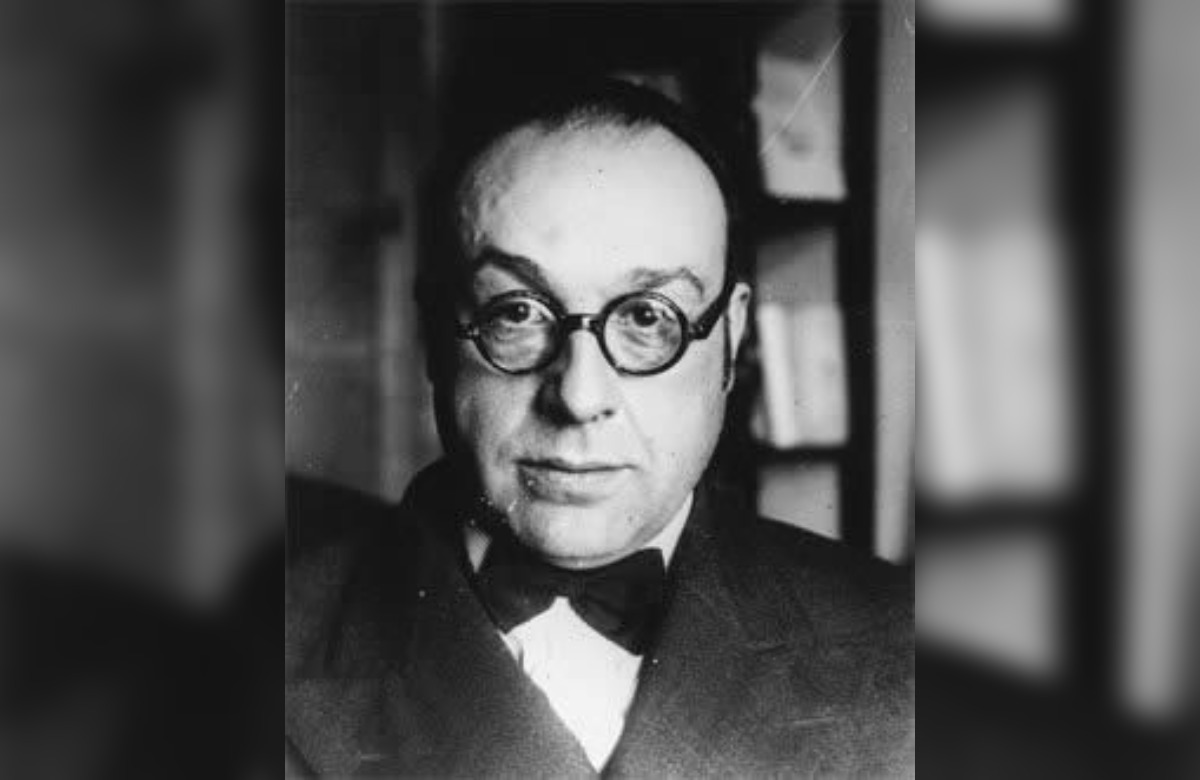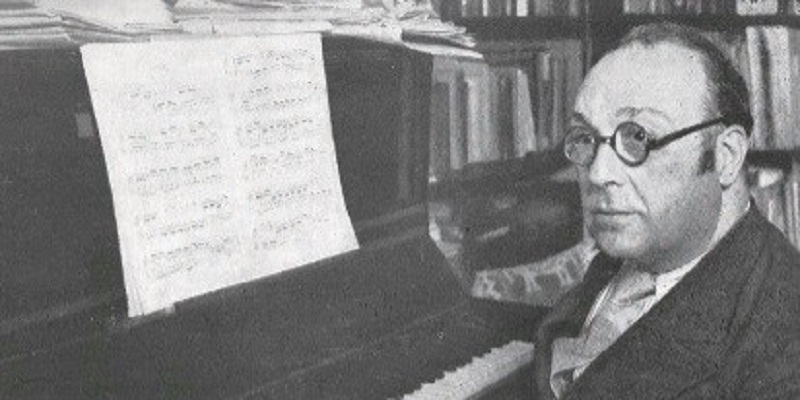
With or without musical knowledge, a classical hearing can have the quality of suggesting the most disparate things to the listener. In this regard, I recall that the philosopher Manuel García Morente, exiled in Paris during the civil war, had a religious experience that was preceded by a musical hearing. The music was the event and his perception of the presence of God constituted what he called an "extraordinary event".
Shortly before midnight on Wednesday, April 29, 1937, a night still with a full moon, García Morente was on the eighth floor of a house located at 126 Boulevard Sérurier. If anyone imagined that this place was an ideal Parisian springtime setting, they would be completely wrong. A good friend of mine, a journalist who has lived in the French capital for years, knows the place. A place that is not the central core of Paris, but neither is it a peripheral residential area. My friend defines it as a no man's land, of a desperate sadness. This description of a sad frontier can be well understood by anyone who has read Louis Ferdinand Céline, known for his harsh novel Journey to the end of the night, and published a sequel in 1936, Death on credit, another autobiographical story, which takes place in neighborhoods and boulevards where humble people try to survive, unable to adapt to technical progress, and who live in debt and misery. For them, living is tantamount to death on credit.
Such must have been the scenario in which Manuel García Morente lived, although the desolation was greater in his spirit. He found no job in Paris, but a publishing house commissioned him to write a dictionary and soon after he received an unexpected offer from Argentina: a chair of Philosophy at the University of Tucumán. However, the professor was overwhelmed by another concern: to get his wife, daughters and grandchildren out of the republican zone. He himself says that his roommate had gone away for a few days and he had been left alone. García Morente smoked and drank coffee continuously, a prey to his nervousness, and he could not sleep. His only window to the world, in the symbolic and real sense, was his room. From it he could see the hill of Montmartre, four kilometers away in a straight line, crowned for some twenty years by the domes of the Sacré Coeur basilica.
Recent events, especially those that could improve his economic situation, had awakened in the philosopher the question of whether they had been the result of chance or had to be attributed to divine Providence. García Morente had lost his faith as soon as he entered adolescence. Reading and solitude had a lot to do with it. The watchmaker God, who abandons the world to its fate, is the god of the agnostics. Did that prestigious professor, educated in the pedagogy of the Institución Libre de Enseñanza, have anything to thank him for? If he had really watched over his livelihood, should he now ask him to help his family leave Spain?

Overwhelmed by his uneasiness, García Morente turned on the radio. In a letter addressed to his friend Monsignor José María García Lahiguera, in which he recounts his spiritual experience that night, he points out the three pieces of music he was able to listen to. He had time to savor the final bars of the Symphony in D by César Franck, which were followed by a short piece, the Pavana for a deceased Infanta by Maurice Ravel, a masterpiece of impressionism, a slow piano music with a distant sonority, which reminded its author of the Infanta in Velázquez's Meninas. Perhaps it does not pretend to be so, but it is a work of religious meditation.
But the great work that García Morente was going to listen to that night was The childhood of Christ by Hector Berlioz, an oratorio with texts by the composer himself. It is certainly not indispensable, but I would advise some to listen to it in its entirety, or in part because it lasts more than an hour and a half, and thus put themselves for a few moments in the place of the philosopher. This one was fixed especially in the figure of the tenor reciter who narrates a history divided in three parts, in which the dream of Herod is evoked that fills him of restlessness for fear of being dethroned by a child born in Bethlehem, the flight to Egypt of the Holy Family and its peaceful rest in an oasis of the desert, and the arrival of the fugitives to the city of Sais in the delta of the Nile. There they are rejected by Romans and Egyptians, until they are finally taken in by an Ishmaelite carpenter, for the descendants of Ishmael are also children of Abraham. The work ends with the intervention of the reciter and a chorus that recommends to the faithful to fill themselves with "grave and pure love, the only bridge that opens the heavenly abode".
The childhood of Christ unleashed in the philosopher's mind a whole succession of images, evocative of other Gospel passages, which he had probably not thought of since his childhood: The forgiveness of the adulterous woman, the feet of Jesus washed by the sinner, Jesus tied to the pillar, the women at the foot of the cross... After the interpretation, García Morente turned off the radio and fixed his gaze on Montmartre, the mount of the martyrs, and that gaze evoked in him an immense multitude of men, women and children attracted by the arms of the Crucified One that reached out to reach everyone. He felt that this God was the true God, the living God, the divine Providence, who had now made an irruption in his life. He knelt down and prayed an Our Father, placing his life in the hands of that provident God with his wounded hands.
Words are poor to express what Manuel García Morente experienced afterwards. All in all, expresses something in his testimony. He was petrified, because in that room experienced the presence of God. He did not see him physically, but he felt immobile and hypnotized by his presence. He confesses that he had this sensation for about an hour. Finally, his spirit would be flooded with joy. It is no coincidence that Blaise Pascal had a similar experience in Paris on the night of November 23, 1654. That night he believed that God was the God of Abraham, Isaac and Jacob, and not the god of the philosophers, and he was filled with an indescribable joy.
Antonio R. Rubio Plo
Degree in History and Law
International writer and analyst
@blogculturayfe / @arubioplo